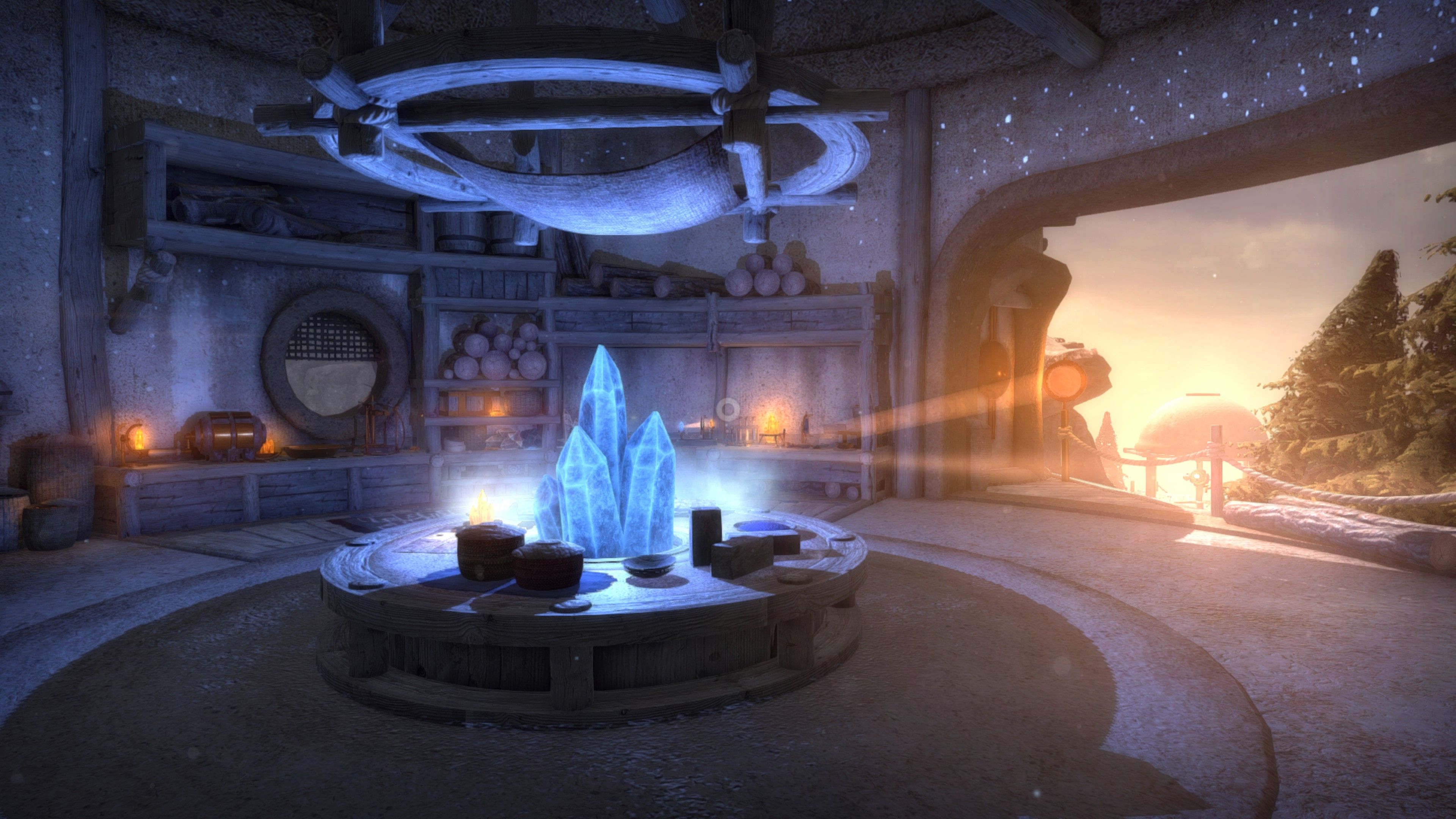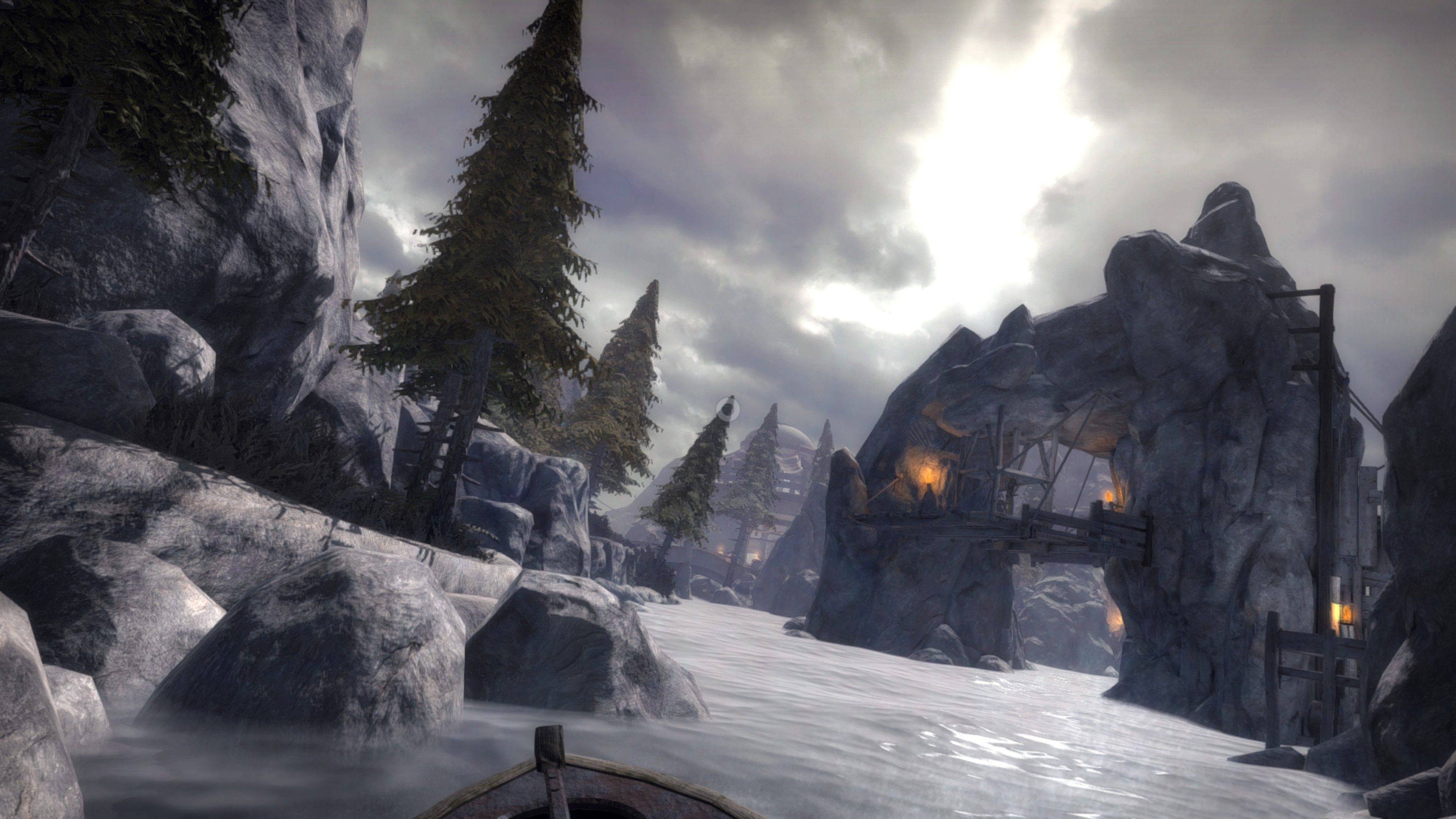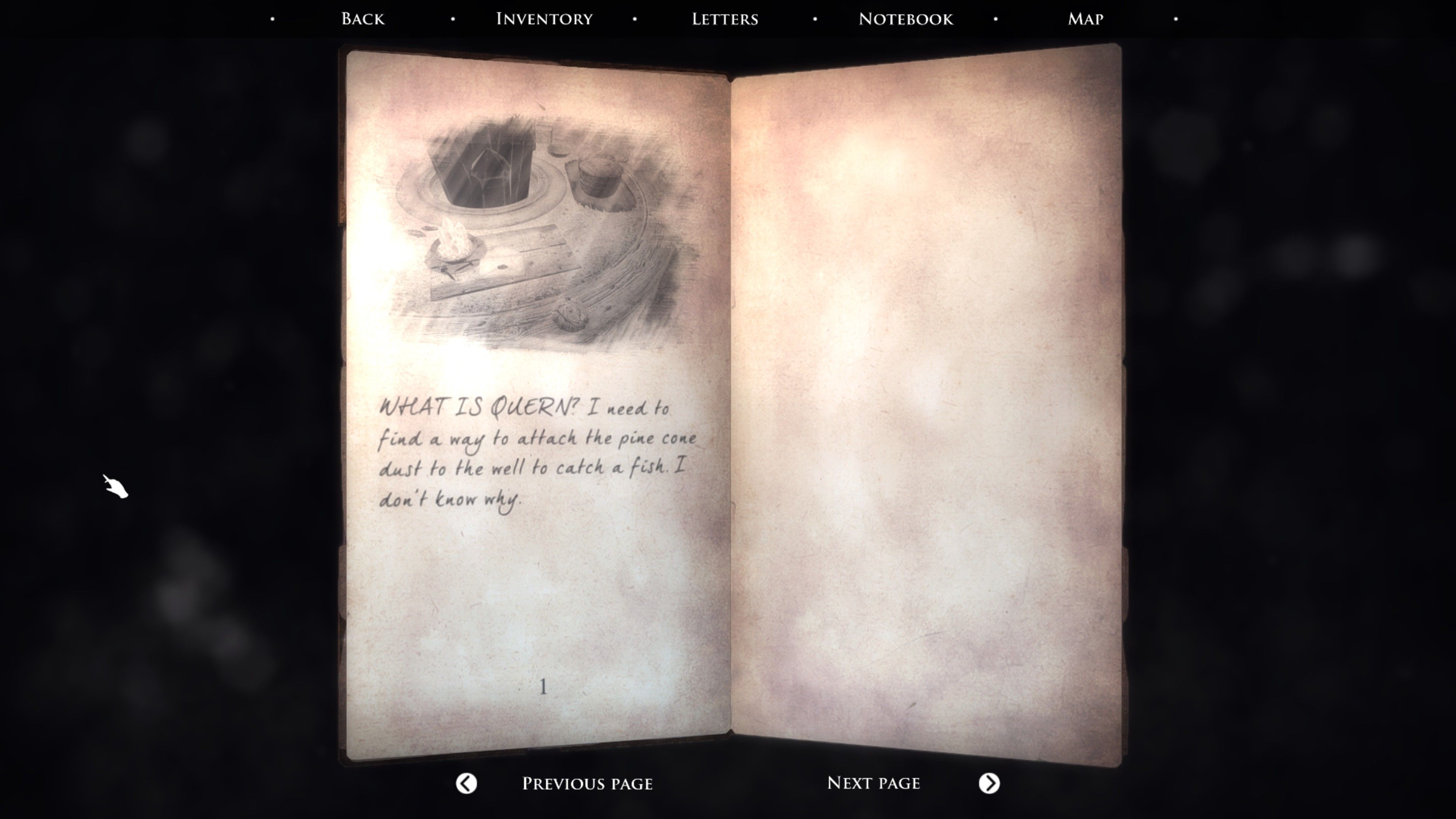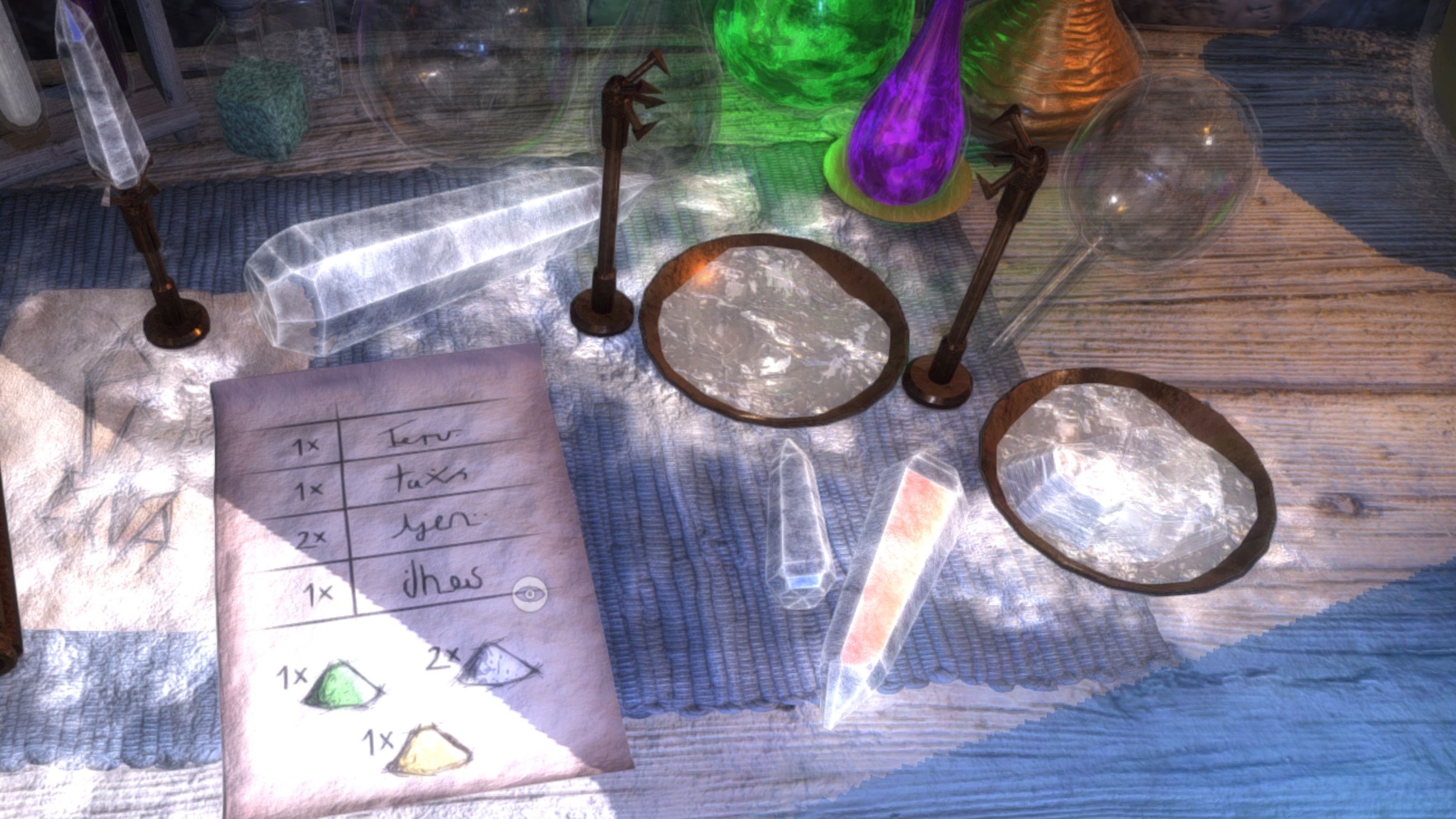Why I love Quern, and the calm of combat-free games
Peaceful puzzling is a great escape.


In Why I Love, PC Gamer writers pick an aspect of PC gaming that they love and write about why it's brilliant. Today, Tom enjoys a stroll.
This week I decided to pick a random game on Steam and play it. This is a risky move, like reaching your arm into a tombola that's 30% full of poo. I reached and I seized upon... Quern: Undying Thoughts. 'Uh oh' I thought, 'what on Earth is a Quern and how do I play one?
It's a gentle first-person puzzle game in the vein of Myst, Riven and—more recently—Obduction. The rules of these games are apparently immutable: you wake up on a mysterious island where time and space have gone wonky and complete puzzles to learn more about your predicament, often at the behest of a handful of half-present characters—CGI people trapped in books in the case of Myst, a voiced series of letters in Quern. There is a block sliding puzzle. There's a laser beam puzzle. There's an audio puzzle in which you arrange objects to recreate a series of tones. Quern's puzzles are less obtuse than the older games, thank goodness, but the fundamentals are the same.

Quern's predictable nature is quite comforting, and though it lack the gorgeous colours of Obduction, the grey stones and infinite oceans are a relaxing break from the kaleidoscopic explosions of Pyre and Nex Machina. The delicate contraptions you have to manipulate to access new parts of the island mark Quern out as a puzzle game rather than a more passive story game, but Quern shares a specific pleasure with Gone Home, Dear Esther, Firewatch and The Vanishing of Edith Finch. They give you a limited interaction set, but greater control over the game's overall pace.
There is a lot of power to that. I have played a lot of games recently that masterfully stick the spurs in at just the right moment with a combat encounter or a cutscene, or a sudden shift to a new area. Quern is full of still, grey rocks where nothing kills you. It's a big friendly quarry segmented into chunks by complicated doors.
I like it a lot. Quern is a good reminder a game with few button prompts can create a richer internal experience than a game that has many. Complexity doesn't equal depth, after all, and puzzle games are particularly good at pushing into your brain as you assemble clues, crack a code based on a key you found in a different building, and remember where you found the keyhole for the weird key you just found.

This wouldn't work without a complete absence of threat. The game lets you enjoy long thoughts without interruption or the hassle of having to adapt to a combat situation. The result is a calm sense of escapism that I wish I could experience in more games. I wish the Witcher 3 had a rambling mode where I could hike around the isles of Skellige without having to worry about giants or tree-spiders.
Quern has a run button. I'm glad it's there, but I have found it unnecessary so far. I like to wander about the game's grey shores thinking about how to resolve a colourful lab puzzle, or where I should plant one of the island's coloured lanterns. Nothing jumps out at me or explodes. It feels good to just be left in peace.
Keep up to date with the most important stories and the best deals, as picked by the PC Gamer team.
Part of the UK team, Tom was with PC Gamer at the very beginning of the website's launch—first as a news writer, and then as online editor until his departure in 2020. His specialties are strategy games, action RPGs, hack ‘n slash games, digital card games… basically anything that he can fit on a hard drive. His final boss form is Deckard Cain.


